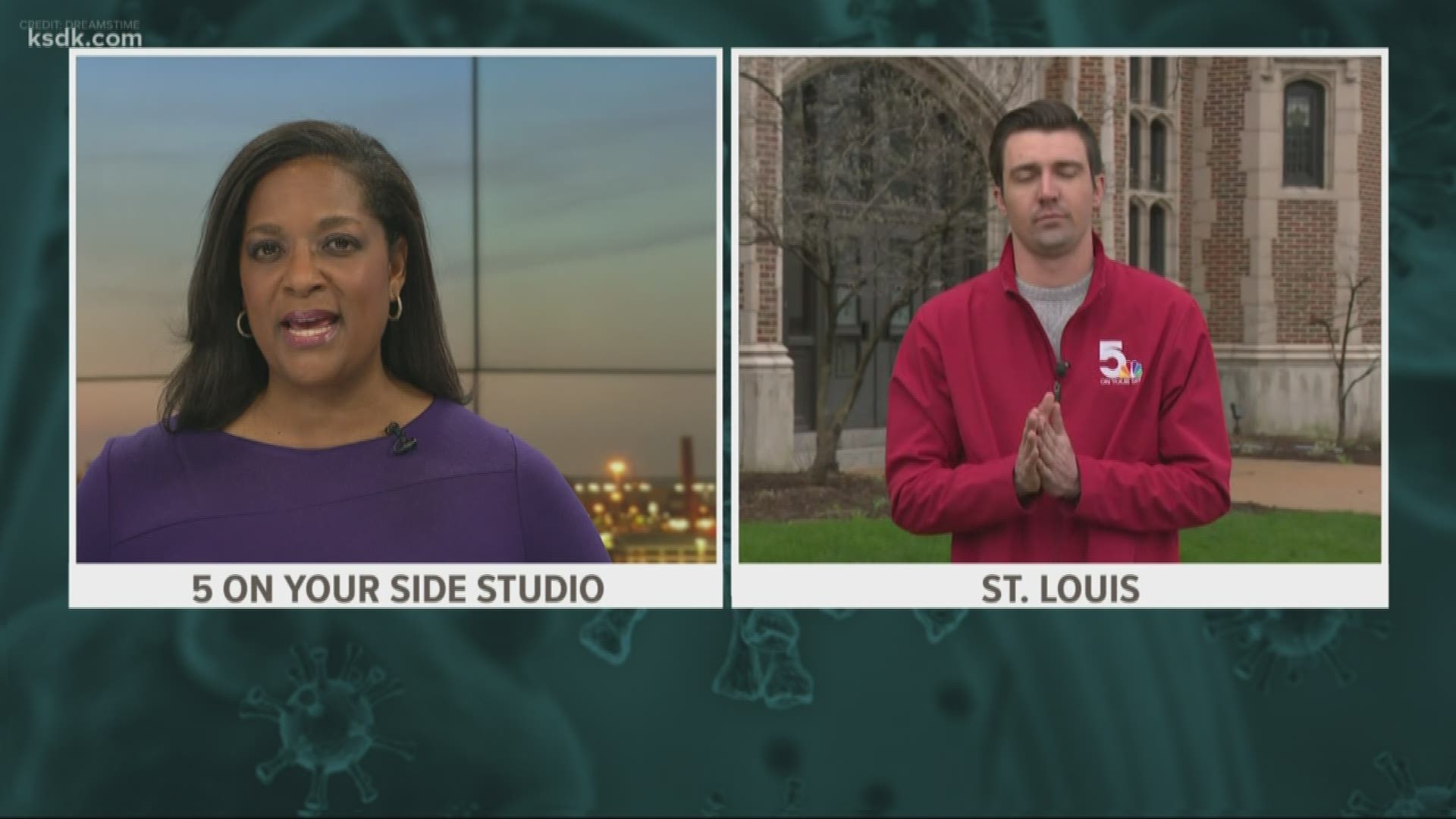ST. LOUIS — Take a look at the video above.
See that dot? That’s you.
And you have the measles. And those dots around you have zero protection against the virus.
Science tells us you will eventually infect 15 others. That is thanks to something known as an R-naught, and that is a fancy term that tells you how contagious a disease is.
The R-naught of measles is 15. The R-naught of smallpox is 6. Both are very contagious. But measles remains rare, and no one gets smallpox anymore.
Credit the rise of vaccinations – an effective shield against contagion. Maybe a few dots received one maybe one didn’t. But it slows the spread.
Now let’s take the new coronavirus. Its R-naught of 2 suggests it’s not as harmful. But as of now, no one has protection. So you and your dot will infect two. And those two will infect four, and so on and so on.
In the U.S., the number of cases is doubling every three days, a true case of exponential growth.
But let’s say you decide to social distance and infect only one, not two. And that one doesn’t go to work and infects no one, that is the end of the line.
As others do the same, social distance and limit interactions, the contagion slows.
Exponential growth turns into linear growth. Cases still increase but at a much more manageable rate until there is an effective treatment or a vaccine. This represents the best odds.
Not by connecting the dots, but by disconnecting them.
COVID-19 is believed to be primarily spread through coughs or sneezes.
It may be possible for the virus to spread by touching a surface or object with the virus and then a person touching their mouth, nose or eyes, but this is not thought to be the main method of spread, the CDC says.
You should consult your doctor if you traveled to an area currently affected by COVID-19 and feel sick with fever, cough or difficulty breathing.
There is no vaccine for the coronavirus, so the best way to prevent COVID-19 and other respiratory diseases is to:
- Avoid close contact with people who are sick.
- Avoid touching your eyes, nose, and mouth.
- Stay home when you are sick.
- Cover your cough or sneeze with a tissue, then throw the tissue in the trash.
- Clean and disinfect frequently-touched objects and surfaces using a regular household cleaning spray or wipe.
- Wash your hands often with soap and water for at least 20 seconds. If soap and water are not readily available, use an alcohol-based hand sanitizer.

